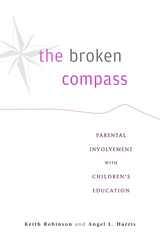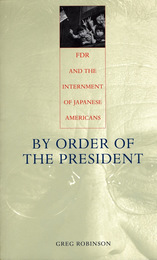5 start with B start with B

appositive style of Beowulf helps the poet communicate his Christian vision of pagan
life. By alerting the audience to both the older and the newer meanings of words, the
poet was able to resolve the fundamental tension which pervades his narration of
ancient heroic deeds.
Robinson describes Beowulf ’s major themes and the grammatical and stylistic
aspects of its appositive strategies. He then considers the poet’s use of the semantically
stratified vocabulary of Old English poetry to accommodate a party Christian and
partly pre-Christian perspective on the events being narrated. The analysis draws
attention to the ways in which modern editors and lexicographers have obscured stylistic
aspects of the poem by imposing upon it various modern conventions.
Appositional techniques, Robinson shows, serve not only the poet’s major themes
but also his narrative purposes. A grasp of the fundamental role played by the appositive
style in Beowulf gives the reader new ways of understanding some of the epic’s familiar
passages. The new foreword addresses the reception this book has had and examines
recent scholarship in the ongoing interest in this amazing poem.

Between Sea and Sahara gives us Algeria in the third decade of colonization. Written in the 1850s by the gifted painter and extraordinary writer Eugene Fromentin, the many-faceted work is travelogue, fiction, stylized memoir, and essay on art. Fromentin paints a compelling word picture of Algeria and its people, questioning France’s—and his own—role there. He shows French dynamism tending to arrogance, tinged with malaise, as well as the complexity of the Algerians and their canny survival tactics. In his efforts to capture the non-Western world on paper as well as on canvas, Fromentin reveals much about the roots of a colonial relationship that continues to affect the Algeria of today. He also reveals his own development as painter, writer—and human being.
Now available for the first time in English, Between Sea and Sahara appeals to today’s reader on many levels—as a story of color, romance, and dramatic tension; as an eywitness account of the colonial experience in Algeria; as a study in trans-genre text, foreshadowing Fromentin’s psychological masterpiece, the novel Dominique. And, as Valérie Orlando points out in her introduction, Fromentin opens a window on the ethos informing the fashion of Orientalism that flourished with colonialism.


It seems like common sense that children do better when parents are actively involved in their schooling. But how well does the evidence stack up? The Broken Compass puts this question to the test in the most thorough scientific investigation to date of how parents across socioeconomic and ethnic groups contribute to the academic performance of K-12 children. The study's surprising discovery is that no clear connection exists between parental involvement and improved student performance.
Keith Robinson and Angel Harris assessed over sixty measures of parental participation, at home and in school. Some of the associations they found between socioeconomic status and educational involvement were consistent with past studies. Yet other results ran contrary to previous research and popular perceptions. It is not the case that Hispanic and African American parents are less concerned with education than other ethnic groups--or that "tiger parenting" among Asian Americans gets the desired results. In fact, many low-income parents across a wide spectrum want to be involved in their children's school lives, but they often receive little support from the school system. And for immigrant families, language barriers only worsen the problem.
While Robinson and Harris do not wish to discourage parents' interest, they believe that the time has come to seriously reconsider whether greater parental involvement can make much of a dent in the basic problems facing their children's education today. This provocative study challenges some of our most cherished beliefs about the role of family in educational success.

On February 19, 1942, following the Japanese bombing of Pearl Harbor and Japanese Army successes in the Pacific, President Franklin Delano Roosevelt signed a fateful order. In the name of security, Executive Order 9066 allowed for the summary removal of Japanese aliens and American citizens of Japanese descent from their West Coast homes and their incarceration under guard in camps. Amid the numerous histories and memoirs devoted to this shameful event, FDR's contributions have been seen as negligible. Now, using Roosevelt's own writings, his advisors' letters and diaries, and internal government documents, Greg Robinson reveals the president's central role in making and implementing the internment and examines not only what the president did but why.
Robinson traces FDR's outlook back to his formative years, and to the early twentieth century's racialist view of ethnic Japanese in America as immutably "foreign" and threatening. These prejudicial sentiments, along with his constitutional philosophy and leadership style, contributed to Roosevelt's approval of the unprecedented mistreatment of American citizens. His hands-on participation and interventions were critical in determining the nature, duration, and consequences of the administration's internment policy.
By Order of the President attempts to explain how a great humanitarian leader and his advisors, who were fighting a war to preserve democracy, could have implemented such a profoundly unjust and undemocratic policy toward their own people. It reminds us of the power of a president's beliefs to influence and determine public policy and of the need for citizen vigilance to protect the rights of all against potential abuses.
READERS
Browse our collection.
PUBLISHERS
See BiblioVault's publisher services.
STUDENT SERVICES
Files for college accessibility offices.
UChicago Accessibility Resources
home | accessibility | search | about | contact us
BiblioVault ® 2001 - 2024
The University of Chicago Press









